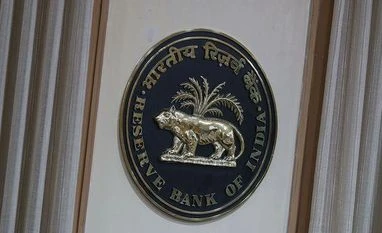The recent fall in inflation may not prompt the central bank to take its eye off the issue as prices may stay sticky in 2023, bankers said at the book launch of Roller Coaster — An Affair with Banking by veteran journalist and Business Standard Consulting Editor Tamal Bandyopadhyay.
“There is some distance to cover as far as managing inflation is concerned,” said Amitabh Chaudhry, managing director (MD) and chief executive officer (CEO), Axis Bank.
He said the government may continue to be cautious about spending, even if general elections are scheduled in one and a half years.
“Elections are coming up and people are talking about the fact that this could be an election Budget, wherein the government could go on spending. But we have to congratulate the government also because through the Covid period, it has held the reins very tightly. I don’t see any reason why it would completely let go. I would say that the past actions will continue to play out — on both the Budget and the Reserve Bank of India (RBI),” said Chaudhry at the book launch.
The Union Budget will be presented on February 1.
Uday Kotak, MD and CEO of Kotak Mahindra Bank, also cautioned about inflation risks.
“There is a risk of greater sticky inflation than what central bankers and investors would like to believe,” Kotak said at the event.
Headline Consumer Price Index-based inflation — the main yardstick of the RBI for monetary policy-making — fell to a 11-month low of 5.88 per cent in November after staying above the upper tolerance band of 6 per cent for 10 months.
The inflation data for December will be announced on January 12.
The central bank has increased the policy repo rate by 225 basis points since May 2022, to tackle inflation.
“There is a risk of a much longer-drawn-out Russia-Ukraine war. We should watch out for China. It is coming out of Covid and wants to prove to the world that it is not just the second-largest country in the world, but aspires to be the first,” said Kotak, pointing out three factors that need to be watched out for.
Former executive director of RBI Sudarshan Sen agreed with the bankers on the panel.
“My understanding is that the RBI is not going to take its foot off the inflation-fighting pedal,” said Sen.
IDFC First Bank’s MD and CEO V Vaidyanathan observed that the government would continue to focus on growth.
“Over the past many years, the government has been focused on infrastructure. Taxation rates have been stable. I don’t think this focus on growth is something the government will let go of,” he said.
Renuka Ramnath, MD and CEO, Multiples Alternate Asset Management, was also optimistic about India’s growth prospects.
“I am very optimistic about the growth of India. I am equally optimistic about the measured approach of the RBI. During Covid times, every step taken was remarkable. I think the RBI will take a balanced approach in managing inflation and growth,” she said.
On the issue of human resources in the banking sector, Kotak said because of the opportunities that have come up in recent times, particularly on the technological side, it is increasingly becoming difficult for banks to attract talent.
“It is getting more and more difficult. Because of the kind of opportunities that have come up for new-age professionals, particularly on the technological side… banking is also getting built around technology. The best of talent is getting more and more cautious about joining what they call ‘banks’,” he said.
“It’s time for banking to think about transformation and reimagine its future. Changing a lot while keeping some things constant. This transformation will require a significant tango between the policymaker and the practitioner. In that context, if Indian banking has to serve the aspirations of a huge Indian economy, I think we have a lot to do ahead of us, both from a policy and a practice point of view,” added Kotak.
Sen — the only regulator on the panel — revealed an interesting facet of YES Bank, which was placed under restrictions by the RBI and revived by State Bank of India, along with other lenders in 2020.
Sen said the regulator always wondered about how the bank was keeping non-performing assets (NPAs) under control at a time when all banks were facing asset quality challenges.
“We used to always wonder about its numbers. We were always looking at it very suspiciously. We kept asking this question about how NPAs are so low. It is only when we followed the money and connected the dots that we saw the big picture about how it was ensuring the quality did not drop,” added Sen.
Unlock 30+ premium stories daily hand-picked by our editors, across devices on browser and app.
Pick your 5 favourite companies, get a daily email with all news updates on them.
Full access to our intuitive epaper - clip, save, share articles from any device; newspaper archives from 2006.
Preferential invites to Business Standard events.
Curated newsletters on markets, personal finance, policy & politics, start-ups, technology, and more.
)